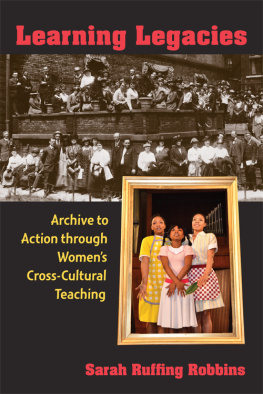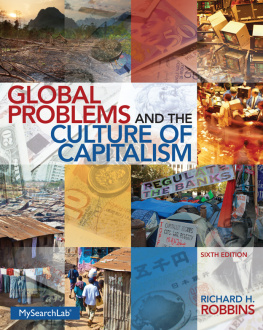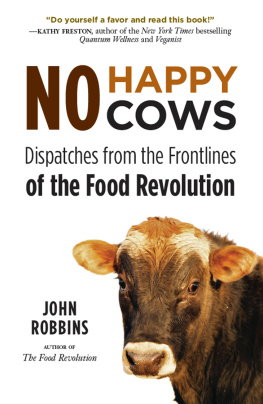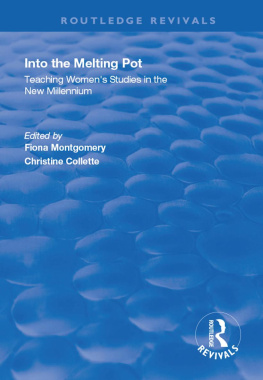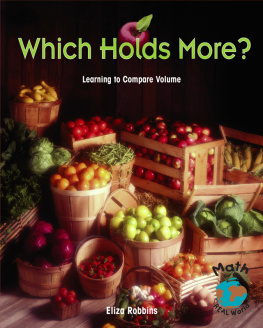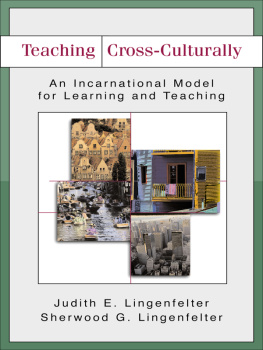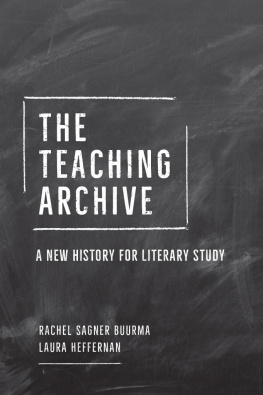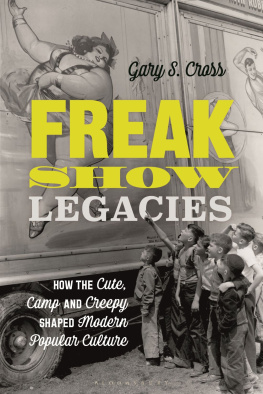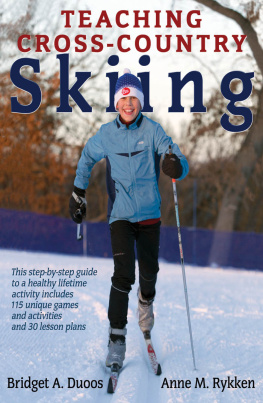Robbins - Learning Legacies: Archive to Action through Womens Cross-Cultural Teaching
Here you can read online Robbins - Learning Legacies: Archive to Action through Womens Cross-Cultural Teaching full text of the book (entire story) in english for free. Download pdf and epub, get meaning, cover and reviews about this ebook. year: 2018, publisher: University of Michigan Press, genre: Romance novel. Description of the work, (preface) as well as reviews are available. Best literature library LitArk.com created for fans of good reading and offers a wide selection of genres:
Romance novel
Science fiction
Adventure
Detective
Science
History
Home and family
Prose
Art
Politics
Computer
Non-fiction
Religion
Business
Children
Humor
Choose a favorite category and find really read worthwhile books. Enjoy immersion in the world of imagination, feel the emotions of the characters or learn something new for yourself, make an fascinating discovery.
- Book:Learning Legacies: Archive to Action through Womens Cross-Cultural Teaching
- Author:
- Publisher:University of Michigan Press
- Genre:
- Year:2018
- Rating:5 / 5
- Favourites:Add to favourites
- Your mark:
- 100
- 1
- 2
- 3
- 4
- 5
Learning Legacies: Archive to Action through Womens Cross-Cultural Teaching: summary, description and annotation
We offer to read an annotation, description, summary or preface (depends on what the author of the book "Learning Legacies: Archive to Action through Womens Cross-Cultural Teaching" wrote himself). If you haven't found the necessary information about the book — write in the comments, we will try to find it.
Robbins: author's other books
Who wrote Learning Legacies: Archive to Action through Womens Cross-Cultural Teaching? Find out the surname, the name of the author of the book and a list of all author's works by series.
Learning Legacies: Archive to Action through Womens Cross-Cultural Teaching — read online for free the complete book (whole text) full work
Below is the text of the book, divided by pages. System saving the place of the last page read, allows you to conveniently read the book "Learning Legacies: Archive to Action through Womens Cross-Cultural Teaching" online for free, without having to search again every time where you left off. Put a bookmark, and you can go to the page where you finished reading at any time.
Font size:
Interval:
Bookmark:
 Page i
Page i 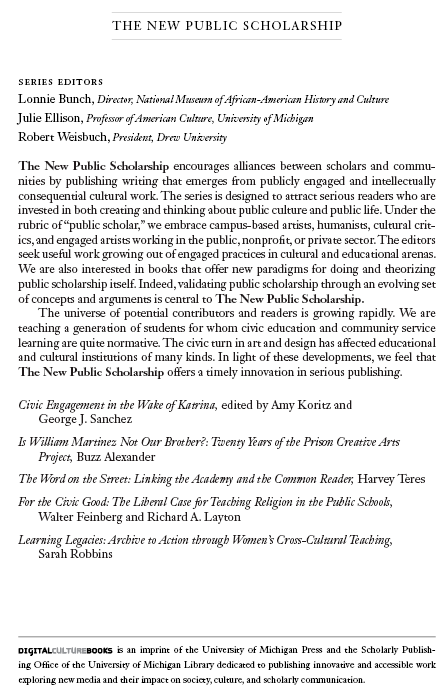 Page ii Page iii
Page ii Page iii Sarah Ruffing Robbins
University of Michigan Press
Ann Arbor
Page iv Copyright 2017 by Sarah Ruffing Robbins
Some rights reserved

This work is licensed under the Creative Commons Attribution-Noncommercial-No Derivative Works 3.0 United States License. To view a copy of this license, visit http://creativecommons.org/licenses/by-nc-nd/3.0/ or send a letter to Creative Commons, 171 Second Street, Suite 300, San Francisco, California, 94105, USA.
Published in the United States of America by the
University of Michigan Press
Manufactured in the United States of America
A CIP catalog record for this book is available from the British Library.
Library of Congress Cataloging-in-Publication data has been applied for.
ISBN 978-0-472-07351-1 (hardcover : alk. paper)
ISBN 978-0-472-05351-3 (paper : alk. paper)
ISBN 978-0-472-12284-4 (e-book)
ISBN: 978-0-472-90070-1 (open access e-book)
DOI: dx.doi.org/mpub.4469010
Page v To teachers, archivists, writers, and other stewards of cross-cultural exchange who seek social justice through stories of shared learning
Page vi Page viiLearning Legacies, though designated as a monograph, has many coauthors.
This books many collaborative writers include inquiry partners who are referenced, in upcoming chapters and the bibliography, as interviews. But during one memorable lunchtime conversation with Rene Gokey and Dennis Zotigh of the National Museum of the American Indian (NMAI), we three discussed differences between research on and research with. Throughout this book, I have certainly aimed for the with approach, and I hope the much-appreciated colleagues who contributed to each chapter will see clear signs of that commitment throughout. In that context, for adding their insightful voices to chapters 4 and 5, besides Rene and Dennis, I send heartfelt thanks to Namorah Byrd, Lisa King, Kimberli Lee, and Malea Powell. Chapter 3 would not have been possible without the energizing contributions of Lisa Lee, Lisa Junkin Lopez, and Heather Radke from the Jane Addams Hull-House Museum in Chicago and from all the authors of Jane Addams in the Classroom, particularly Todd DeStigter and David Schaafsma, whose leadership in teacher education has been a benchmark for me across multiple decades. For chapter 2, I send a special shout-out to Deborah Mitchell, Kassandra Ware, and the now much-missed Taronda Spencer of Spelman College.
Additional research partners for Learning Legacies include generous readers who provided feedback on various draftsasking sometimes tough and always generative questions to push my thinking. Chief among that group of early readers and conversation partners were fellow faculty members and graduate students in the English Department at Texas Christian University (TCU). Thanks especially, from that incomparable home base Page x of collaboration, to these gentle (to use a favorite nineteenth-century term) readers: Richard Enos, Charlotte Hogg, Carrie Leverenz, Brad Lucas, Anne George, Layne Craig, Stacie McCormick, and Theresa Gaul. While all of you have generously guided my work, I must give special thanks to my visionary friend, Carrie Leverenz, who has been an incomparable shepherd of my thinking on this project through literally countless conversations. Five graduate student colleagues gave helpful time at various stages: Carrie Tippen, Tyler Branson, Natasha Robinson, Adam Nemmers, and Samantha Allen will certainly see signs of their contributions here. Your research was attentive, your copyediting clear, your feedback insightful, and your belief in the work inspiring. Thanks as well to all the energetic students in undergraduate and graduate classes who contributed to my thinking about teaching across cultures.
More broadly, being housed in an English Department where literature and rhetoric speak appreciatively to each other daily, in the classroom and in collegial exchanges, was essential to this books development. In that regard I thank Linda Hughes, Mona Narain, and Karen Steele and all my other department colleagues for teaching, conversations and collaborations crossing the divide that sometimes separates British Studies from American and Writing Studies from Literature, but does not at TCU. And I salute Dean Andrew Schoolmaster as well; his support of professional development for faculty in AddRan College has left its imprint here too.
Internal funding sources such as the Discovering Global Citizenship (DGC) Visiting Scholar program at TCU were also important to this volumes content, and the chance to serve with the visionary members of the DGC committee has left its mark throughout this text. In the John V. Roach Honors College, where I was serving as acting dean while completing the manuscript, I also found supportive staff colleagues (including Lauren Nixon, Colby Birdsell, Marie Martinez, Donna Schonerstedt, Jason Dunn, Renda Williams, and Lynn Herrera), who strategized ways to give me occasional time away from dean duties to do writing. Special thanks to Darren Middleton, Ron Pitcock, Dan Williams, Juan Carlos Sola-Corbacho, Elisa Foster, and Wendy Williamsand to all faculty then teaching in Honorsfor continually confirming to me the importance of linking teaching and scholarship. Thanks as well to the talented administrative fellows team members (Amanda Allison, Aaron Chimbel, Will Gibbons, and Marla McGhee) for making part-time administrative support a creative approach to freeing up your busy acting dean colleague Page xi for Learning Legacies and other writing tasks, not to mention survival of a super-busy transition.
While I take full responsibility for any shortfalls in this books content, I know its stories are the better for having had super-smart guidance from specialist scholars in key fields relevant to Learning Legacies case studies. From beyond TCU, I thank Barbara McCaskill, Joycelyn Moody, and Roxanne Donovan for giving essential feedback on chapter 2. Encouraging written reflections from Beth Steffen and Heather ORourke reenergized me at a moment when I was losing steam on chapter 3. Conversations with Philip DeLoria helped me believe I could write thoughtfully and (I hope) usefully about the National Museum of the American Indian. Encouraging words from Jessica Enoch about potential use for the book among rhetoric scholars came at a pivotal time of revision. As always, my colleague historian Ann Pullen has been my most demanding and most supportive reader.
Much of the project-based work revisited in this volume was possible only by virtue of funding from the National Endowment for the Humanities and the National Writing Project (NWP). Participants in programs like Keeping and Creating American Communities and the various NWP Teachers Teaching Teachers institutes and continuity programs that I helped facilitate while directing Kennesaw Mountain Writing Project will undoubtedly see ways that they shaped the stories here.
As indicated in the bibliography, a number of archives, museums, and cultural sites have been vital to this books development, and staff members at each of those locations have been unfailingly helpful. Archivists and librarians also assisted with the acquisition and permission-for-use process for images appearing here. Thanks to Kassandra Ware of the Spelman College Archives, Mark Thiel and Amy Cary of Marquette Universitys Baynor Memorial Libraries, Nicole Joniec of the Library Company of Philadelphia, Deborah Richards of Mount Holyokes Archives and Special Collections, and Kay Peterson of the National Museum of American History (Behring Center, the Smithsonian Center Archives), as well as multiple staff members at the Richard J. Daly Special Collections and Archives at the University of Illinois Chicago. Laura Micham of Duke University and Ammie Harrison of TCUs library helped me think through my use of the archive(s) term. More broadly, the outstanding collections and services of TCUs Mary Couts Burnett Library, under the leadership of Dean June Koelker, were, as always, a gift to my scholarship. I am especially thankful for Dean Koelkers direct support of this book via funds contributing to the publication process.
Font size:
Interval:
Bookmark:
Similar books «Learning Legacies: Archive to Action through Womens Cross-Cultural Teaching»
Look at similar books to Learning Legacies: Archive to Action through Womens Cross-Cultural Teaching. We have selected literature similar in name and meaning in the hope of providing readers with more options to find new, interesting, not yet read works.
Discussion, reviews of the book Learning Legacies: Archive to Action through Womens Cross-Cultural Teaching and just readers' own opinions. Leave your comments, write what you think about the work, its meaning or the main characters. Specify what exactly you liked and what you didn't like, and why you think so.

